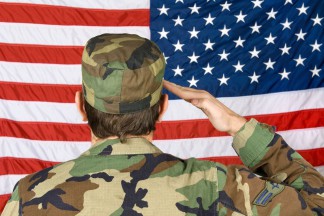Following are excerpts of reactions from politicians and others across the state to Gov. Sean Parnell’s decision not to accept federal dollars to expand Medicaid, the joint federal/state program that provides health insurance to the poor. Parnell said that expanding the program would simply be adding to the “hot mess” that is ObamaCare and though it would insure more Alaskans, “it’s not my intention to create an economy based on federal dependence,” he said. In denying the funds, the state will also deny as many as 41,500 low income Alaskans access to insurance, and turn down as much as $2.5 billion in federal dollars, as well as 4,000 new jobs.
Democratic gubernatorial candidate Byron Mallott:
Today Governor Parnell made a calculated political decision to reject calls for Medicaid expansion – hurting some 41,000 Alaskans who will remain without affordable, quality health care. Medicaid expansion should never have become a partisan issue. Despite the Governor’s claims, this was a clear and immediate way to help our economy grow, create new jobs, and lower heath care costs for all of us. That’s why I joined with many state leaders and business organizations in urging him to change his stance on Medicaid expansion. It’s disappointing that Parnell continues to stand in the way of what is best for our state and Alaskans.
Rachael Petro, president and CEO of the Alaska Chamber of Commerce:
Our approach to Medicaid expansion was a pragmatic one and it is unfortunate that the Governor decided to reject the concept as a whole without considering our idea of limiting expansion based on actual federal funding. However, the Governor did say that he is committed to addressing the cost of healthcare for all Alaskans, and is willing to work with legislators and groups like ours to find solutions which provide care for Alaskans in need. Ultimately, the Alaska Chamber is committed to supporting solutions which improve Alaskan’s business climate and will continue toward that goal.
Alaska state Sen. John Coghill:
Considering the failure of the Affordable Care Act, the Governor is wise to refuse Medicaid expansion at this time. It’s a matter of dollars and cents – America can’t afford it. They don’t have the money to pay for this and they’ll take it from future generations. I applaud the Governor’s decision.
U.S. Sen. Mark Begich:
Governor Parnell’s announcement today means he is denying health insurance to as many as 40,000 Alaskans, which at the start is free to the state and eventually would cost no more than 10 cents on the dollar…Without the expansion, people who cannot afford insurance will continue to get their health care needs met in hospital emergency rooms across the state—the most expensive way to get health care. Those costs will continue to be passed on to all other Alaskans.
Andy Teuber, chairman and president of the Alaska Native Tribal Health Consortium:
We look forward to seeing what other solutions the Governor may offer. But in the meantime, 40,000 Alaskans are left without any kind of health care coverage. They cannot afford to buy it. For most of these people, there is no other source of assistance to get coverage. When someone is sick, they have to choose between getting health care and feeding their family.
Republican Rep. Pete Higgins:
I support the Governor’s decision not to expand Medicaid at this time. We owe it to our children not to put the burden of this on them and our future generations. I look forward to working with the various entities and the Administration as they put together their Advisory Group.
The Alaska State Hospital and Nursing Home Association:
ASHNHA is disappointed in the Governor’s decision today. We remain concerned about the thousands of Alaskans who are too poor to buy health insurance and as a result of this decision will not get coverage. We see Alaskans daily in our hospitals who critically need health care services. We serve them regardless of their insurance status and we will continue to do so.
Zack Fields, press secretary for the Alaska Democrats:
Parnell refused to crack down on insurance companies cancelling coverage for Alaskans, in contrast to other states that protected consumers…Despite touting them on the State’s website, Parnell is now calling for repeal of the (Affordable Care Act) that outlaws insurance abuses like annual limits, gender discrimination, and price gouging based on pre-existing conditions. While insurance companies have cancelled thousands of Alaskans’ health policies, Parnell has taken no action to defend consumers…
Democratic Rep. Jonathan Kreiss-Tomkins:
You might think Obamacare is the worst thing to happen to the healthcare system since the bubonic plague. You might think (as I do) that the roll-out of healthcare.gov has been so abominable it’s practically seditious. But that’s irrelevant to the question of Medicaid expansion, which would change the lives of tens of thousands of people for the better. Morally: Our status quo healthcare system is not working super well. 45,000 Americans die every year because they can’t afford treatment for preventable disease. This is a simple, morally repugnant statistic… Medicaid expansion insures the uninsured and offers a glimmer of humanity in our rough-and-tumble world.
The Anchorage chapter of the NAACP:
The governor decided to provide favor to the insurance industry by not allowing provisions in the ACA that would dramatically change health insurance coverage in Alaska when it is fully implemented in 2014. These provisions include reforming the individual insurance markets by eliminating pre-existing condition exclusions, guaranteeing coverage and renewability of coverage, establishing Health Benefit Exchanges, an individual mandate, subsidizing health insurance for people between 100 and 400 percent of FPL, and a mandate for large employers to offer health insurance.
Contact Amanda Coyne at amandamcoyne@yahoo.com




